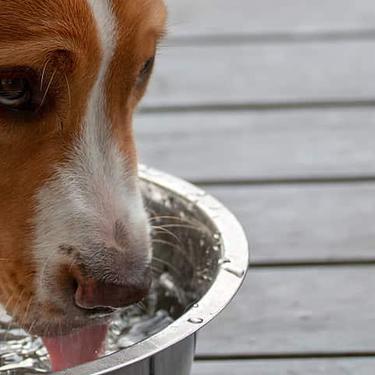Urinary health for dogs
Urinary health for dogs
While many dogs’ urinary issues may be treated and cured with assistance from your vet — including urinary tract infections (UTIs) and struvite stones — there are some instances where your dog’s urinary condition may require lifelong care. In particular, dogs who experience calcium oxalate crystals might face a long-term challenge. Fortunately, urinary dog food can play an important role in not only helping to dissolve struvite stones, but also to manage urinary conditions by helping to manage future flare-ups.
As part of a comprehensive care plan including medication, dog food for urinary health can help dogs get back to their day-to-day lives so they can rejoin the family.
Understanding a misunderstood condition
When a house-trained dog starts urinating in the home, it is not uncommon for pet parents to believe their pet is simply having accidents. Sadly, this can sometimes create a lack of trust and put a strain on the relationship between even the most loving pets and their pet parents. These incidents, however, are not always simple accidents — they may be important indicators of serious but manageable medical conditions. That’s why it’s important to be able to recognise the signs of your dog’s urinary issues, so you can make more informed decisions about their urinary health.
Spot the signs of your dog’s urinary issues
As stressful as your dog’s urinary issues can be for you, they are often just as painful for them. Look out for these signs and contact your vet if you suspect your pet may be suffering from a urinary disorder.
Blood in urine
If you discover blood in your dog’s urine, this is a sign of bladder stones in dogs or another medical condition that should be addressed promptly.
Peeing in the house
If your adult dog is having frequent accidents or urinating in unusual places, this could be a sign of several common urinary conditions — especially if the amount of urine produced is small.
Painful urination
Straining to urinate or other difficulties urinating could indicate bladder stones in dogs or other urinary disorders.
Frequent urination
If your dog is urinating small amounts more than usual or making repeated attempts to go outside, make a note and address your concerns with your veterinarian.
Urinary tract infection (UTI)
When bacteria enters through a dog’s urethral opening, dogs may develop a UTI. This bacteria can cause inflammation, painful urination and ultimately lead to bladder stones if left unchecked.
Strutive stones
Dog bladder stones are collections of mineral crystals that combine together to form a stone in the urinary bladder. Less often, stones may form in the kidneys.
These infection-induced (common) or non-infection-induced (rare) bladder stones can lead to irritation and pain for your dog.
Calcium oxalate stones
Another type of dog bladder stones is composed of calcium oxalate. Most often these stones are found in the urinary bladder.
While calcium oxalate stones usually are not associated with infection, they can also lead to irritation of the bladder and discomfort for your dog.
Managing your dog’s urinary issues
When it comes to urinary conditions, there is no one-size-fits-all solution. That’s why it’s important to work closely with your veterinarian to determine the best course of action for your dog’s unique needs.
In general, dogs diagnosed with urinary disorders benefit from a comprehensive approach that may consist of everything from urinary dog food to medication and even surgery, if needed. But remember, even with the best treatment, some dogs may have recurring signs or periodic episodes.
Nutrition
If you are looking for the best dog food for urinary health, look for a food that moderates their intake of certain minerals like calcium, phosphorous and magnesium that can cause crystals to form in the urine.
Medication
Depending on your dog’s particular needs, a veterinarian may prescribe antibiotics (in the case of UTIs) or medication to help your dog manage any pain associated with their stones while you get them on the right track with a urinary dog food to help dissolve stones and manage future recurrences.














